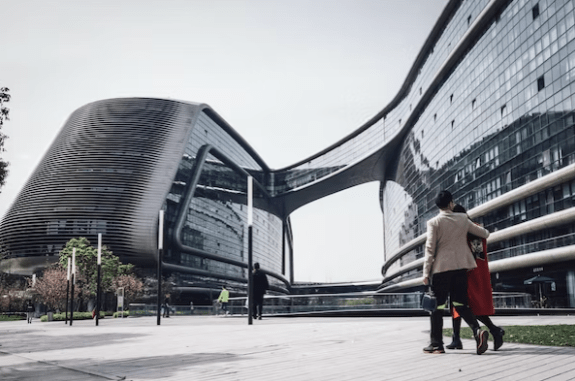
As modern cities grow unprecedentedly, planning and management become vital aspects of urban development. Modern city planners must keep up with technological advancements to help the city adapt to the changing needs of its residents. Below, Houssam Abiad explores some leading technologies which he thinks are essential for modern city planning.
1. Geographic Information Systems (GIS)
GIS technology has dramatically revolutionized modern city planning. GIS technology helps city planners create digital maps that can be used to analyze various city data, such as land use patterns, infrastructure locations, and population density. With GIS, city planners can explore and access data about the city in real-time and make vital decisions about city planning and development.
2. Traffic Management Systems
Traffic management systems are essential in modern city planning. With intelligent traffic management systems, cities can better manage traffic flow, reduce congestion, and prioritize public transport. These systems use real-time data to coordinate traffic signals, optimize traffic flow, and even detect accidents to adjust traffic conditions on the fly.
3. Smart Lighting
Intelligent lighting systems are fast being adopted in modern city planning. Innovative lighting systems have sensors that detect movement and adjust light intensity based on activity level. This technology helps to save energy, reduce light pollution, and create a safer environment for residents.
4. Big Data Analytics
Big data is an essential component of modern city planning. City planners collect vast amounts of data from various sources like social media, cameras, and sensors. The data is analyzed to understand the needs and behavior of residents and enhance decision-making. With big data analytics, city planners can identify patterns, analyze trends, and understand citizen preferences and needs.
5. Smart Waste Management
Intelligent waste management is another technology that is essential for modern city planning. Cities can better manage waste and reduce environmental pollution with intelligent waste management systems. This technology uses brilliant bins fitted with sensors to monitor waste levels and, in some cases, mechanical designs that can sort and recycle waste.
6. Automated Parking Systems
Automated parking systems are another technological advancement that is revolutionizing city planning. With mechanical parking systems, residents can easily park their cars, freeing up valuable city space and reducing congestion. This technology uses sensors that detect vehicles and guide them to available parking spaces.
7. Smart Buildings
Intelligent buildings are designed with advanced technology that enables them to operate more efficiently, consume less energy, and be more environmentally friendly. These buildings have intelligent systems that monitor environmental conditions like air quality, temperature, and lighting and adjust them accordingly. With smart buildings, energy consumption is reduced, and there is better resource utilization.
8. Smart Grids
Smart grids are essential for modern city planning. A smart grid is an advanced electrical grid made up of digital technology that can monitor, communicate, and coordinate the flow of electricity to meet the needs of residents. With smart grids, energy consumption is more efficient, and energy losses are reduced.
9. Digital Twin Technology
Digital Twin technology creates digital replicas of physical assets like bridges, roads, and buildings. These digital twins can simulate various scenarios and test potential development plans and other city planning strategies. This technology helps city planners make better decisions by enabling them to test hypotheses and evaluate multiple methods.
10. Autonomous Vehicles
Autonomous vehicles are set to revolutionize modern city planning. With self-driving cars, traffic congestion is reduced, and transportation is made more efficient. Autonomous vehicles use sensors, cameras, and data analytics to navigate and avoid accidents. Although not yet widespread, this technology has enormous potential for modern city planning.
Final Thoughts
The above-listed technologies are crucial for modern city planning, observes Houssam Abiad. He also thinks that many other technologies like blockchain, 5G, and AR/VR have vast potential for current city planning. City planners need to keep up with these technologies to help cities adapt and respond to the changing needs of their residents. By leveraging these technologies, modern cities can optimize various city services, improve citizen well-being, and enhance overall city life.



